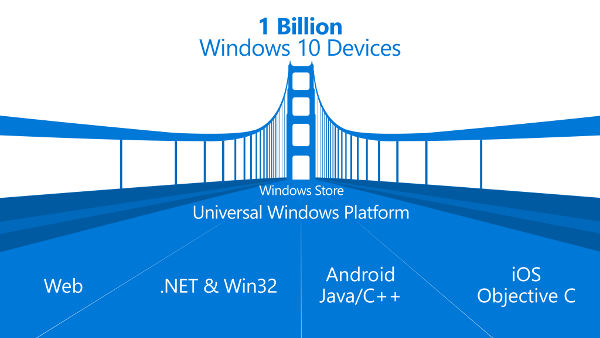| Windows 10 - The Trojan Horse |
| Written by Mike James |
| Wednesday, 29 July 2015 |
|
Microsoft has launched Windows 10 and you can see it as not so much an operating system but a Trojan horse designed to get Microsoft into your computing life. There are many things to say about Windows 10 - and due to the huge number of people involved in the "insider" program most of them have already been said. We essentially know all of the big mainline technical things about Windows 10 already so there isn't much point in going over them. What does seem worth considering is the way that Windows 10 is being used by Microsoft to import its technologies. With phones and tablets doing so many of the jobs for which you once needed a desktop machine, it is clear that Windows isn't as important as it once was. However, there are still a lot of desktop machines out there and this isn't a small market. It makes the recent history with Windows 8 seem all the more reckless. Microsoft annoyed desktop users by focusing on tablet and touch rather than big screens, keyboards and mice. Windows 10 still incorporates the "go mobile" features but now it doesn't make them unavoidable if you are working with a desktop setup.
Now you can use Windows 10 on a desktop machine and optionally make use of the mobile extras - i.e. WinRT apps, Live tiles and so on. This is good enough for most desktop users not to hold back and to accept the free upgrade to Windows 10. After all there isn't too much to lose and there might be things to gain - like Cortana, Live tiles and some other neat WinRT apps. Of course, you are also seeing what Windows 10 would be like on a tablet. This might make you more inclined to buy one. You might even be tempted by a Window Phone. The only problem here is that Windows 10 for phones isn't going to be available for a while. Even if you don't take the bait, there is still the small matter of logging on with your Microsoft user account rather than a local machine account. In the early previews it was difficult to avoid having to sign in with an online account. In the upgrade that is being shipped at the moment you keep the account you have on the machine - local or online. However, it doesn't take long before you will encounter some encouragement to switch to a Microsoft online account because things just work better with one. If you are a developer then the pressure to switch to an online account is even stronger. If you want to develop universal apps you have to have a developer licence and this means signing in with a Microsoft account. If you are a Windows insider and part of the test program then you have to sign in with a Microsoft account to receive updates. You can even sign up to see "insider builds" to preview new features if you have upgraded to a release version of Windows 10 - but you will have to sign in to Windows with your Microsoft account and this replaces your old local account.
My guess is that the pressure to use a Microsoft account is going to increase as Windows 10 is updated. Of course the big problem with signing in to your desktop with a Microsoft online account is that you have to use a strong password. Many desktop machines use weak, or even no, passwords because the physical security of the machine is thought to be sufficient. Suddenly having to type in a strong password each time you access your machine is going to put off a lot of users. Microsoft has tried to do something about this by making biometric login available and even by reducing the password to a four-digit pin just to log into a particular desktop machine - but some users are still not going to like the idea. Windows 10 can be viewed as a Trojan horse getting Microsoft products and services into your desktop machine and beyond. This is the reason Microsoft can offer it for free to everyone other than Enterprise users. Perhaps it is worth developing that Universal app after all - the final SDK and tools should be with us very soon and the Windows 10 for phones might also become a reality. In the meantime Windows 10 is rolling out to desktop machines. building a user base for our apps. More Informationhttp://blogs.windows.com/launch/
Related ArticlesProject Westminster - Another Web App Format Why Should We Write Universal Apps When Microsoft Drops Them - Skype To Go Desktop Only Windows 10 To Be Released On July 29 Android And iOS Apps For Windows 10
To be informed about new articles on I Programmer, install the I Programmer Toolbar, subscribe to the RSS feed, follow us on, Twitter, Facebook, Google+ or Linkedin, or sign up for our weekly newsletter.
Comments
or email your comment to: comments@i-programmer.info |
| Last Updated ( Wednesday, 29 July 2015 ) |




